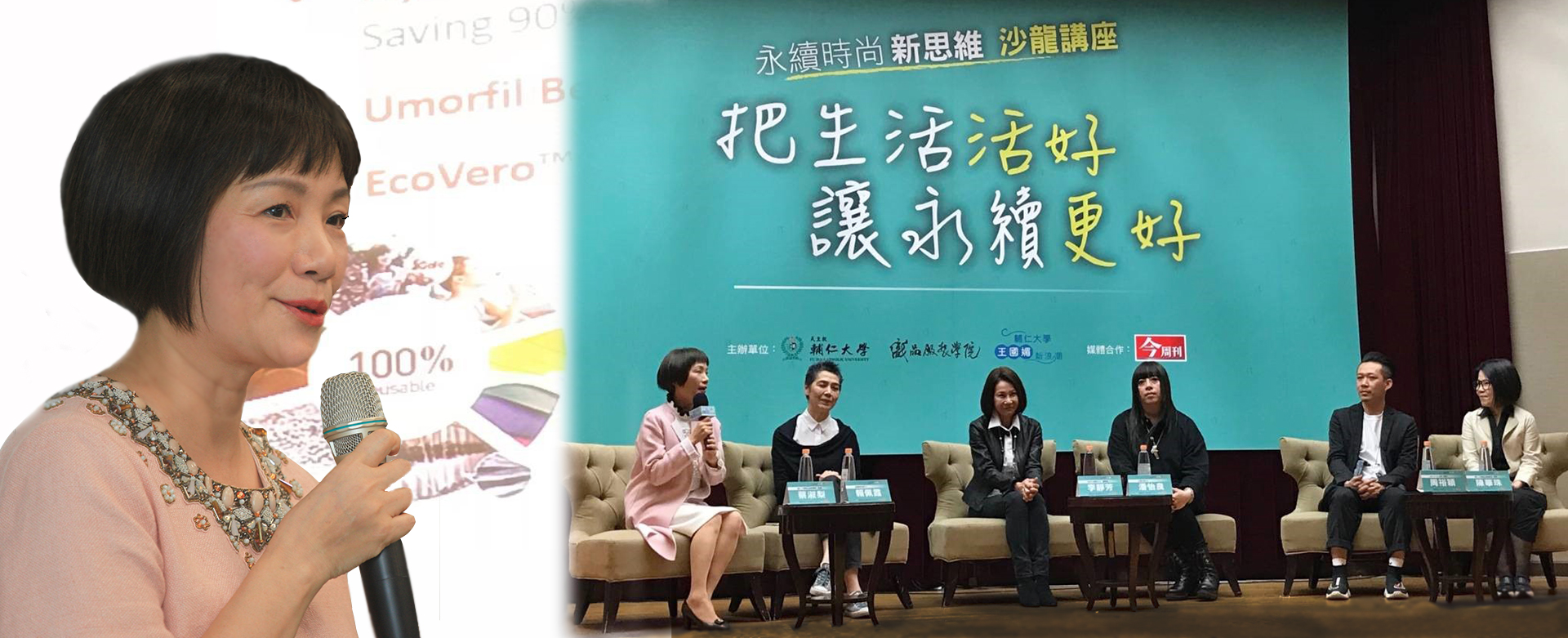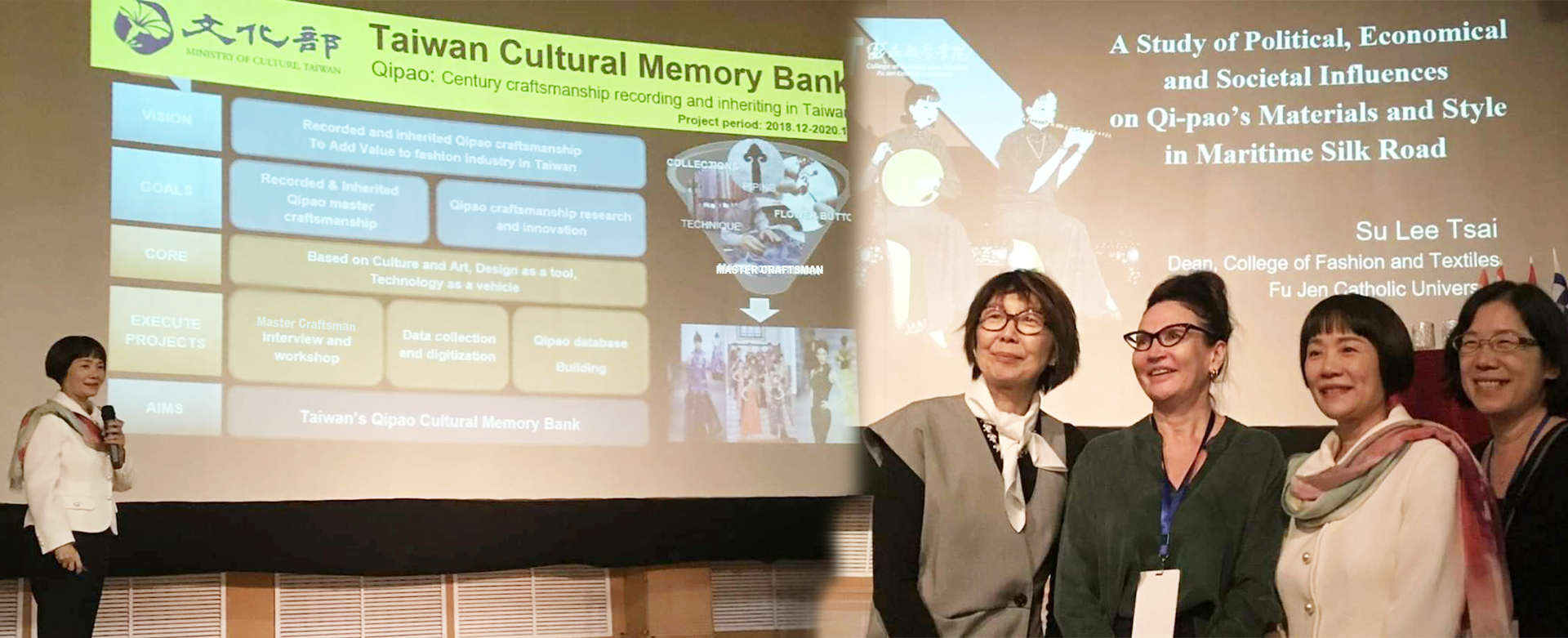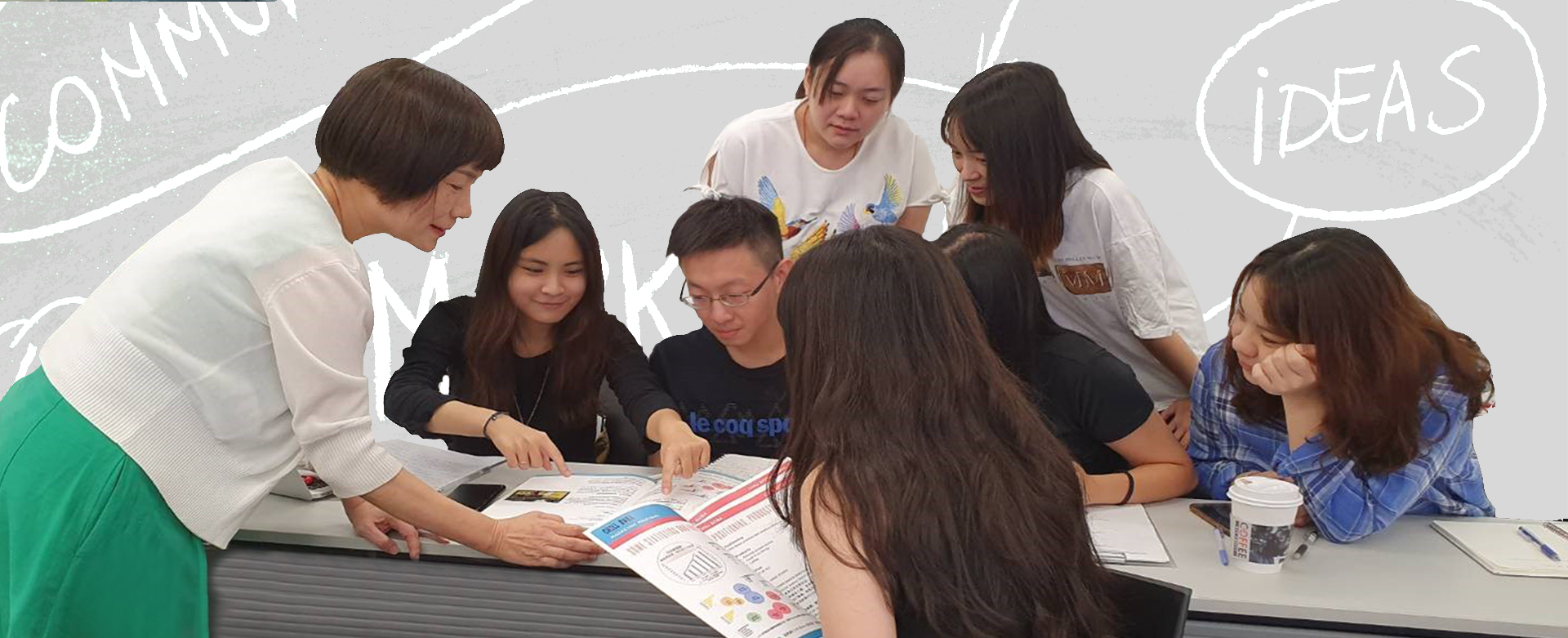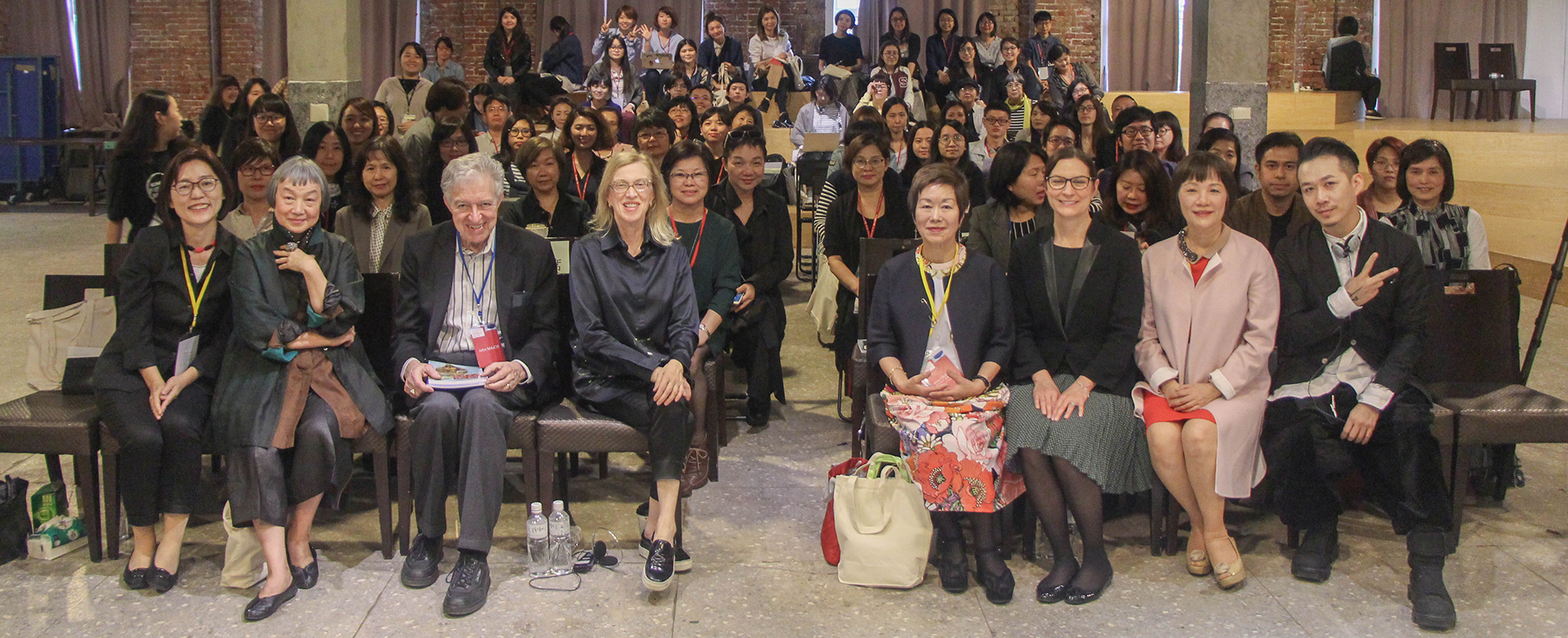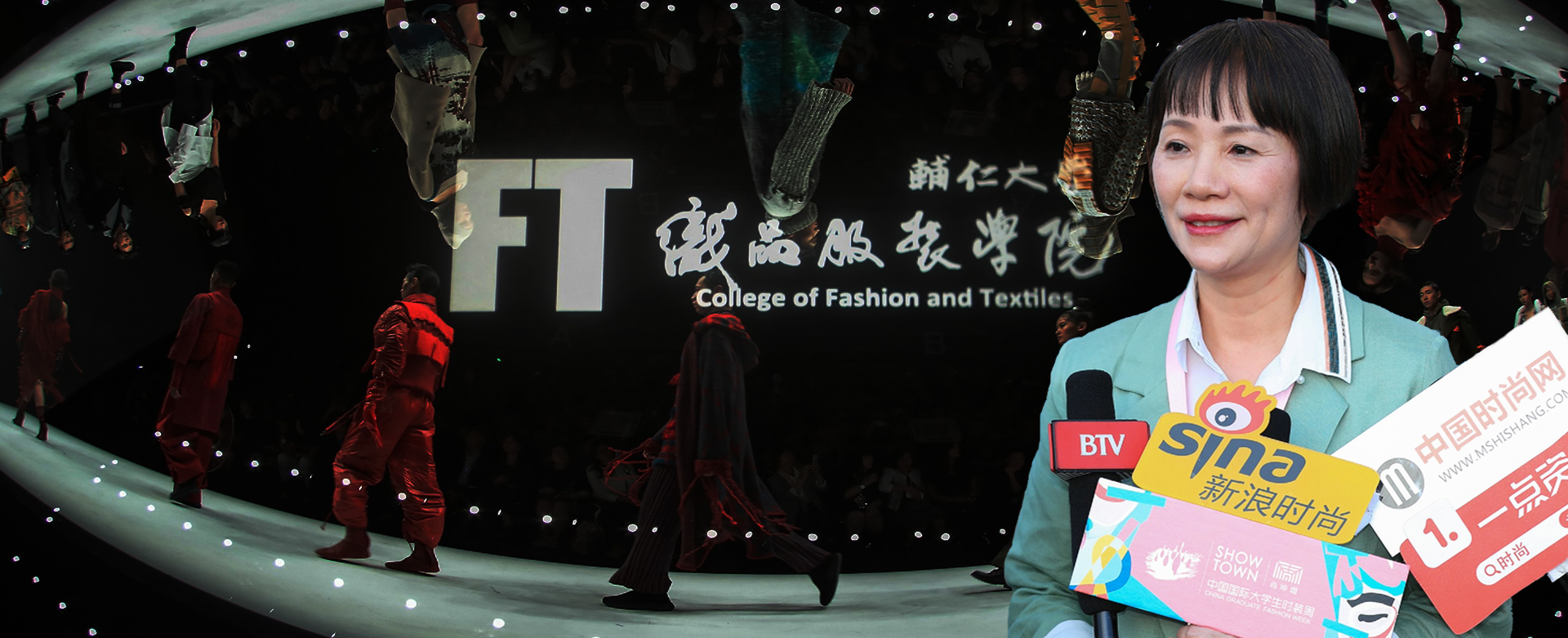Featured Scientist

Su-Lee Tsai, Ph.D.
College of Fashion and Textiles
Professor
Department of Textiles and Clothing
Multi-disciplinary Integration and Innovation
Dr. Su-Lee Tsai has more than 30 years of industrial experience. Her major teaching and research areas are innovation management and strategic marketing management. She is currently the dean of the College of Fashion and Textiles, serving in numerous government and nongovernmental committees as well as being an independent director for IPO companies and small and medium enterprises (SMEs).
On the administrative side: With an entrepreneurial personality, Dr. Tsai is a pioneer in many aspects. First, in 2000, she established the first EMBA program in her school in the department of Textiles and Clothing. The program has been running for more than 20 years and closely connects industrial resources with the department and incubates numerous talents in the industry. Second, she was appointed as the chair of the Textiles and Clothing department and successfully integrated the Textiles and Clothing department, Textile and Clothing graduate school, and Accessories Design and Retailing department into one entity in 2006. Dr. Tsai restructured these three entities into a matrix-type organization—the first of its kind in the university.
Third, she was appointed as the dean of the International Education Office, director of the European Union Center, and director of the new full-English Brand and Fashion Management MA Program (established to expedite the university’s internationalization). In addition, she won the leading for the international and national secretary general of UMAP for Fu Jen Catholic University to coordinate with 35 countries and 570 members in the Asia Pacific area. During this period, the number of sister schools doubled and became Taiwan’s leading internationalized university.
Fourth, as the dean of the College of Human Ecology, she led the only school enterprise (FJ EZmy) in expanding from campus to compete in the marketplace. After realizing the difficulties among disciplines that obstruct progress and synthesize among the College of Human Ecology’s departments, in 2017, she successfully divided the college into (1) the College of Human Ecology (containing the departments of Restaurant, Hotel, and Institutional Management; Child and Family Studies; Food Science; and Nutrition Science) and (2) the College of Fashion and Textiles (containing the department of Textiles and Clothing, the full-English MA program in Brand and Fashion Management, and the Graduate Institute of Museum Studies). The division helps each college focus and collaborate with each department and fully cultivate their synergy.
As the first dean of the College of Fashion and Textiles, Dr. Tsai not only strives to make the college a leader in Asian fashion education but also is fully devoted to developing new curricula based on the college’s core value of sustainability. Within the last 3 years, the college has raised funds to renovate the building and upgrade major facilities as well as to provide six incubation units for students and graduates to start new ventures. In addition, college also fully-sponsor students to Fashion Scout in London for the last 3 consecutive years, and the largest international graduate student fashion show in Beijing, China, and competitions in Japan, Wuhan, Ching-Ho and etc.. These actions are exemplary of the college’s internationalization and innovation efforts.
On the teaching side: Dr. Tsai has won many awards in teaching and research. She has also guided students to win entrepreneurship and creativity competitions in the Ministry of Education Competition. Because of her unique industrial experience and entrepreneurial nature, she adopted an unconventional and creative teaching method (called a flipped classroom) by using project-based, problem-based, field study, or technology-aided methods that create an unique learning environment for students. Students must identity problems and create solutions that include resources they must acquire on their own. Student-centered activities encourage students to discuss topics in different contexts to gain real-world experience. Most courses are taught using various and the most recent technologies for students to easily acquire knowledge and skills. Becoming independent in thinking, researching, asking questions, interacting, and expression are key in teaching.
On the academic side: Dr. Tsai’s experience could be divided into two parts: (1) projects for the government and industries and (2) research and publications. Dr. Tsai graduated from Rensselaer Polytechnic Institute, known for science and engineering education as well as pioneering the integration of management and technology in the United States. Dr. Tsai skillfully adopted this technique in the textiles and clothing industry. Therefore, her first type of research focus involves implementing electronics and the Internet to transform the textiles and apparel industry, innovating products, processes, and business models, as well as managing customer relationships by using new technology and the Internet. This category also includes projects on creativity and entrepreneurship.
Dr. Tsai’s second type of research consists mainly of Ministry of Science and Technology projects that focus on two categories: the first is topics on entrepreneurship and new ventures as well as innovative business models. The second category is culture element digitization. Dr. Tsai digitizing 1,500 qipao pieces (Ministry of Culture project, December 2018–November 2020) and 5,232 pieces of aboriginal Taiwanese textiles and apparel (the Ministry of Economic Affairs research and development project, 2009–2010) to provide origin elements, which include vector diagrams and metadata for students and designers to use. Through field study, literature review, and primary and secondary data, the contribution of these projects are building database on the disappearing artifacts and craftsmanship and providing inspiration and value for designers and future creations of all types.
Recent years, Dr. Tsai has been focused on the issue of sustainability because large amounts of waste are generated from the fashion industry, and this has considerable effects on the built environment and climate change. The current design mindset needs to change from using conventional materials to innovating new materials or accepting more recycled and reused materials. Under these circumstances, Dr. Tsai established the Global Sustainable Fashion Research Center with a direction for both research and curricula. The center has four areas: (1) culture and heritage, (2) technology and design, (3) business and management, and (4) analytics and communication. This center commits to sustainable fashion from design to manufacturing, retailing to consumers.
With a strong vision and mission, Dr. Tsai foresees a missing link between education and the future world because of rapidly changing technology that makes many fields, including education, obsolete. She again led the college to receive a “UFO project” (University Foresight Education, Ministry of Education, 2019), which was 1 of only 64 projects approved by the Ministry of Education nationwide. The project’s purpose is to create a method and strategic development map for future education. Curricula, teaching methods, interaction with industries, and implementation and infusion of technology should be redesigned because the future requires cross disciplinary training. Therefore, this is a critical moment for schools to incubate students with humanity, innovative, and internationalization capabilities that can differentiate themselves from others and avoid the threats of artificial intelligence and automation.
109 views